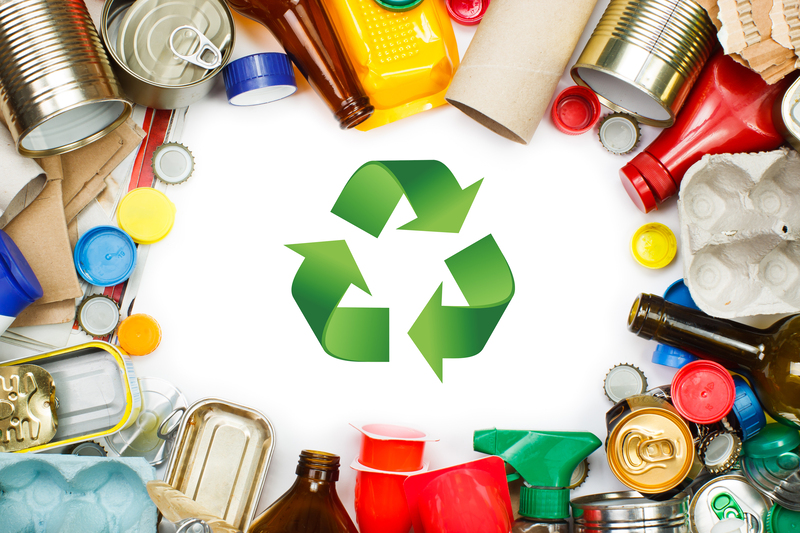Rubbish Removal Bags - Easy, Efficient, and Eco-Conscious Waste Solutions
In today's fast-paced world, managing waste effectively is more important than ever. Both households and businesses can benefit from simple, efficient, and sustainable rubbish solutions. Rubbish removal bags, sometimes called skip bags, garbage bags, or waste sacks, offer a versatile and eco-friendly alternative to traditional waste disposal methods. In this comprehensive guide, we explore how these bags work, their benefits, and tips for using them to maximize cleanliness and environmental responsibility.
What Are Rubbish Removal Bags?
Rubbish removal bags are heavy-duty, secure flexible containers designed for the collection, storage, and transportation of garbage, debris, and recyclable material. Available in a range of sizes and materials, these bags can handle everything from domestic household overflow to construction site waste. Choosing the right waste removal bag is crucial for maintaining hygiene, efficiency, and environmental sustainability.
Key Features of Rubbish Removal Bags
- Durable Material: Often made from sturdy woven polypropylene, recycled plastics, or biodegradable resins.
- Versatile Sizes: Ranging from smaller garbage sacks to jumbo builder's waste bags.
- Easy Handling: Reinforced handles for safe lifting and simple transportation.
- Weather-Resistant: Most bags are designed to withstand outdoor elements.
- Eco-Friendly Options: Available in compostable and recyclable versions.

Why Use Waste Removal Bags? The Top Benefits
Waste management is an ongoing challenge for homes, offices, garden projects, and building sites. Traditional solutions--like hiring a skip or making multiple trips to the tip--are often costly and inconvenient. Rubbish removal sacks and skip bags offer remarkable advantages:
1. Easy and Convenient Waste Collection
Simply unfold the bag, fill it with your rubbish, and schedule a pickup or drop it at a collection point.
Benefits:
- No need for complicated permits as with traditional skips.
- Bag can be placed in driveways, gardens, or hard-to-reach locations.
- Tidies up quickly after renovations, landscaping, or house clear-outs.
2. Cost-Effective and Efficient
Waste disposal bags are significantly cheaper than skip hire. Because you only pay for what you use, there's no risk of overpaying.
- No rental charges for unused time.
- Reduced labor with easy bag filling, handling, and transport.
- Avoids messy overfilling or unsightly rubbish piling up.
3. Eco-Conscious and Sustainable
Eco-friendly rubbish removal bags help minimize environmental impact. Many are constructed from recycled or biodegradable materials, and responsible waste disposal ensures higher rates of recycling.
- Encourage separation of recyclables, green waste, and landfill rubbish.
- Reduce greenhouse gas emissions through fewer vehicle trips and more efficient collection.
- Less plastic pollution compared to single-use thin plastic liners.
4. Versatile for Domestic and Commercial Needs
- Perfect for household clean-ups, garden waste, and spring cleaning.
- Ideal for building sites, office refurbishments, and event waste.
- Specialized bags available for hazardous materials and e-waste.
Types of Rubbish Removal Bags
With the demand for smarter waste removal bag solutions, the market offers several choices:
Standard Bin Bags
- Use: Everyday household rubbish management.
- Size: 15-60 litres.
- Material: Thin plastic (recyclable/biodegradable options available).
Heavy-Duty Builder's Waste Bags
- Use: Bricks, rubble, construction debris.
- Size: 1-4 cubic yards, carrying 1000 kg or more.
- Material: Woven polypropylene or strong canvas.
Green Waste/Biodegradable Bags
- Use: Garden trimmings, leaves, compostables.
- Size: Varies; usually 60-120 litres for domestic use.
- Material: Compostable or degradable plastics, kraft paper.
Skip Bags (Jumbo Waste Sacks)
- Use: Major clear-outs, demolition, large volumes of mixed waste.
- Size: Up to 4.5 cubic yards, or around 1.5 tonnes of waste.
- Material: Industrial-grade woven polymers.
How to Choose the Right Rubbish Removal Bag
Selecting the correct rubbish disposal bag prevents unnecessary mess, hazards, and costs. Consider the following when making your choice:
1. Volume and Weight
- Estimate the amount and density of waste (light vs. heavy materials).
- Choose heavy-duty bags for rugged or sharp materials.
2. Waste Type
- Sort waste (general, green, construction, hazardous) and avoid mixing to allow for recycling or safe disposal.
- Separate bag types enable most efficient after-collection processing.
3. Eco-Friendly Material
- Look for bags labeled as compostable, biodegradable, or made from recycled content.
- Some rubbish companies offer take-back and recycling programmes for their bags.
4. Pick-Up and Transport Options
- Check if your rubbish bag provider offers scheduled or on-demand collection.
- Ensure the site is accessible for collection vehicles if using jumbo skip bags.
How Rubbish Removal Bags Support Eco-Conscious Living
The right waste bag not only makes disposal faster -- it also helps you take tangible steps towards sustainability:
- Reduces landfill waste through effective sorting and recycling options.
- Encourages responsible consumption by making users aware of their waste generation.
- Decreases fossil fuel use thanks to consolidated, efficient removals.
Compostable & Biodegradable Bags: Are They Really Green?
Eco rubbish bags made from cornstarch, potato, or paper degrade naturally but require the right industrial composting conditions. Ensure your waste processing company or council accepts and properly processes these bags. When used correctly, they represent a big step in cutting plastic pollution and helping future generations.
Best Practices for Using Rubbish Removal Sacks
- Do not overfill bags to avoid breakage or injury, especially with heavy or sharp waste.
- Keep the bag dry by storing on hard, level ground, away from standing water where possible.
- Label or separate your bags if disposing of different types of rubbish (general, recyclables, green, hazardous).
- Do not include restricted items (asbestos, chemicals, batteries) unless your provider accepts them especially.
- Close bags securely to prevent rubbish spilling during transport or collection.
Improving Your Home or Business Waste Footprint
Using rubbish bags is only part of the solution. Pairing their convenience with reduce, reuse, recycle principles maximizes your positive impact. Here's how:
- Plan projects to minimize waste and purchase only what you need.
- Reuse suitable items where possible to avoid unnecessary disposal.
- Sort recyclables and compostables at the source and choose the right bag for each waste type.
- Engage local recycling or composting facilities for responsible end-of-life processing.
Common Uses for Rubbish Removal Bags
At Home
- Kitchen and household waste disposal
- Spring cleaning clear-outs
- Garden projects (green waste, soil, turf)
- DIY repairs or renovations (plaster, tiles, fixtures)
For Businesses and Construction
- Office refurbishments and document shredding
- Retail store refits and packaging waste
- Construction or demolition site debris
- Commercial landscaping and grounds maintenance
Frequently Asked Questions About Rubbish Removal Bags
What waste can I put in a removal bag?
Most bags accept general household rubbish, green/garden waste, light construction debris. For hazardous or electrical items, consult your provider for specialist bags or guidance.
How are rubbish removal bags collected?
Collection varies by service: some require scheduled pick-up, while others allow bag drop-off at a council tip or recycling center. Big skip bags may need a collection truck with a crane arm.
Are eco-friendly rubbish removal sacks more expensive?
While initial costs may be slightly higher, the environmental savings and long-term benefits often outweigh the price difference. Providers are increasingly competitive for sustainable bag products.
Can rubbish bags be used during bad weather?
Heavy-duty and weather-resistant bags are designed to handle rain, wind, and sun exposure. For best results, keep them off the ground and tightly shut if not being filled immediately.
Top Tips for Maximizing the Benefits of Rubbish Removal Bags
- Always choose the correctly sized bag for your project to avoid spills and injuries.
- Separate waste types in different bags to improve recycling efficiency.
- Opt for eco-conscious materials wherever possible.
- Label bags for collection crews or waste centers if they're not see-through.
- Check your local council or removal service for accepted items and bag limitations before filling.
- Store unused bags out of direct sunlight to prevent UV damage if they're going to be used again.

Where to Buy or Hire Rubbish Removal Bags
- Local hardware stores and building merchants:
- Often stock various sizes and strengths for home, garden, and builder use.
- Online retailers:
- Convenient bulk ordering and delivery of eco-friendly or heavy-duty options.
- Compare customer reviews for durability and reliability.
- Waste removal companies:
- Many offer skip bag hire with collection service built-in.
- Check if they provide eco-conscious or recyclable bag options.
Conclusion: Simple, Efficient, and Green Solutions for Modern Waste Needs
Rubbish removal bags make clutter, rubbish, and bulk material disposal easy and accessible for everyone--from households to building professionals. Their strong, weather-proof, and often eco-conscious design means they solve waste challenges without unnecessary landfill, hassle, or expense.
Whether tackling a garden makeover, renovating your home, or managing office waste, the right rubbish bag solution can save time, money, and the environment. By choosing quality, sustainable products and using them with best practice waste separation, you're helping build a cleaner, greener future -- one bag at a time.
For a quick, efficient, and planet-friendly rubbish removal, consider making the switch to modern rubbish disposal bags today!